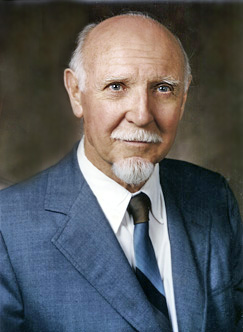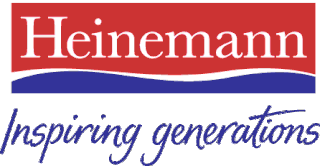Related Research Articles
Psychometrics is a field of study within psychology concerned with the theory and technique of measurement. Psychometrics generally covers specialized fields within psychology and education devoted to testing, measurement, assessment, and related activities. Psychometrics is concerned with the objective measurement of latent constructs that cannot be directly observed. Examples of latent constructs include intelligence, introversion, mental disorders, and educational achievement. The levels of individuals on nonobservable latent variables are inferred through mathematical modeling based on what is observed from individuals' responses to items on tests and scales.
RELX plc is a British multinational information and analytics company headquartered in London, England. Its businesses provide scientific, technical and medical information and analytics; legal information and analytics; decision-making tools; and organise exhibitions. It operates in 40 countries and serves customers in over 180 nations. It was previously known as Reed Elsevier, and came into being in 1993 as a result of the merger of Reed International, a British trade book and magazine publisher, and Elsevier, a Netherlands-based scientific publisher.

Pearson plc is a multinational corporation, headquartered in the UK, focused on educational publishing and services.
Houghton Mifflin Harcourt Company is an American publisher of textbooks, instructional technology materials, assessments, and reference works. The company is based in the Boston Financial District. It was formerly known as Houghton Mifflin Company, but it changed its name following the 2007 acquisition of Harcourt Publishing. Prior to March 2010, it was a subsidiary of Education Media and Publishing Group Limited, an Irish-owned holding company registered in the Cayman Islands and formerly known as Riverdeep. In 2022, it was acquired by Veritas Capital, a New York-based private-equity firm.

Raymond Bernard Cattell was a British-American psychologist, known for his psychometric research into intrapersonal psychological structure. His work also explored the basic dimensions of personality and temperament, the range of cognitive abilities, the dynamic dimensions of motivation and emotion, the clinical dimensions of abnormal personality, patterns of group syntality and social behavior, applications of personality research to psychotherapy and learning theory, predictors of creativity and achievement, and many multivariate research methods including the refinement of factor analytic methods for exploring and measuring these domains. Cattell authored, co-authored, or edited almost 60 scholarly books, more than 500 research articles, and over 30 standardized psychometric tests, questionnaires, and rating scales. According to a widely cited ranking, Cattell was the 16th most eminent, 7th most cited in the scientific journal literature, and among the most productive psychologists of the 20th century.
Houghton Mifflin Harcourt Learning Technology, originally started as Riverdeep Interactive Learning, is a publishing house for educational online and CD-ROM products based in San Francisco, Boston and Dublin, Ireland. Founded in 1995, Riverdeep was principally the creation of the Irish ex-investment banker Barry O'Callaghan. O'Callaghan was Riverdeep's CEO and controlling shareholder. Riverdeep also acquired the companies Broderbund, The Learning Company and Edmark, and became a distributor for said companies.
Harcourt was an American publishing firm with a long history of publishing fiction and nonfiction for adults and children. The company was last based in San Diego, California, with editorial/sales/marketing/rights offices in New York City and Orlando, Florida, and was known at different stages in its history as Harcourt Brace, & Co. and Harcourt Brace Jovanovich. From 1919 to 1982, it was based in New York City.

Barbri is a company headquartered in Dallas, Texas, whose primary product offering is a bar review course. Because of the general difficulty of state bar exams, a majority of law school graduates choose to take some form of preparation course. Barbri offers law school graduates a six to seven week review course which features lectures by law professors on the seven major areas covered on the Multistate Bar Examination (MBE) – torts, contracts, real property, evidence, criminal law, civil procedure and constitutional law – along with additional lectures on the specific law of the state in which the participant plans to take the bar.

TI Media Ltd. was a consumer magazine and digital publisher in the United Kingdom, with a portfolio selling over 350 million copies each year. Most of its titles now belong to Future plc.
Pearson Education, known since 2011 as simply Pearson, is the educational publishing and services subsidiary of the international corporation Pearson plc. The subsidiary was formed in 1998, when Pearson plc acquired Simon & Schuster's educational business and combined it with Pearson's existing education company Addison-Wesley Longman. Pearson Education was restyled as simply Pearson in 2011. In 2016, the diversified parent corporation Pearson plc rebranded to focus entirely on education publishing and services, and as of 2023 Pearson Education is Pearson plc's main subsidiary.
Holt McDougal is an American publishing company, a division of Houghton Mifflin Harcourt, that specializes in textbooks for use in high schools.

William Heinemann Ltd., with the imprint Heinemann, was a London-based publisher founded in 1890 by William Heinemann. Their first published book, 1890's The Bondman, was a huge success in the United Kingdom and launched the company. He was joined in 1893 by Sydney Pawling. Heinemann died in 1920 and Pawling sold the company to Doubleday, having worked with them in the past to publish their works in the United States. Pawling died in 1922 and new management took over. Doubleday sold his interest in 1933.

John Bissell Carroll was an American psychologist known for his contributions to psychology, linguistics and psychometrics.
Greenwood Publishing Group, Inc. (GPG), was an educational and academic publisher which was part of ABC-Clio. Since 2021, ABC-Clio and its suite of imprints, including GPG, are collectively imprints of British publishing house Bloomsbury Publishing. The Greenwood name stopped being used for new books in 2023.

Cengage Group is an American educational content, technology, and services company for higher education, K–12, professional, and library markets. It operates in more than 20 countries around the world.
Penn Foster Career School is a U.S. for-profit, regionally and nationally-accredited distance education school offering career diploma programs and certificate programs. It was founded in 1890 as International Correspondence Schools, or ICS. Penn Foster is headquartered in Scranton, Pennsylvania.
Saunders is an American academic publisher based in the United States. It is currently an imprint of Elsevier.
William Jovanovich was an American publisher, author, and businessman of Montenegrin descent. He served as the director of the publishing firm Harcourt, Brace & World from 1954 to 1991, renamed Harcourt, Brace, Jovanovich in his honor in 1970. He also owned SeaWorld marine parks, and wrote both fiction and non-fiction.

Lorenz Educational Press is an educational publisher based in Dayton, Ohio. The company focuses on educational materials for the K–12 market, including language arts, math, science, social studies, critical thinking, team building, movement and music, and test preparation. Its parent company, The Lorenz Corporation, has been in the publishing industry since 1890.
References
- 1 2 "Pearson Completes Acquisition of Harcourt Assessment". Assessment & Information group of Pearson. Archived from the original on March 27, 2012. Retrieved July 16, 2011.
- ↑ Harcourt's recent job cuts due to competitive testing market, San Antonio Business Journal, February 10, 2006.
- ↑ Harcourt Assessment CEO steps down, San Antonio Business Journal, February 2, 2006.
- ↑ (Aug. 7, 2006) Who's News Noted … Wall Street Journal
- ↑ Harcourt Assessment cutting staff by 10 percent Archived 2007-09-29 at the Wayback Machine , San Antonio Express-News, January 18, 2007.
- ↑ "Reed Elsevier to sell education arm". Reuters. February 15, 2007. Retrieved July 16, 2011.[ dead link ]
- ↑ "Pearson acquires Harcourt Assessment and Harcourt Education International from Reed Elsevier". Pearson. Archived from the original on September 27, 2011. Retrieved July 16, 2011.
- ↑ Fildes, Nic (May 5, 2007). "Pearson pays $950m for two of Reed's Harcourt Education units". The Independent. London. Archived from the original on September 30, 2007. Retrieved May 8, 2007.